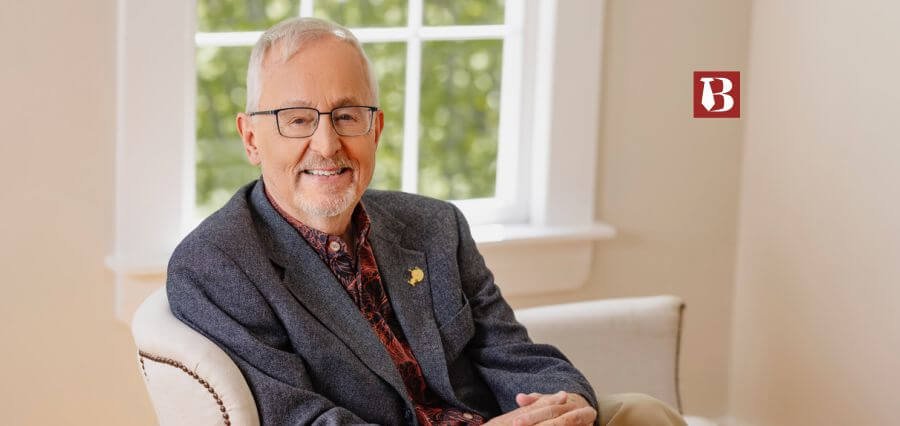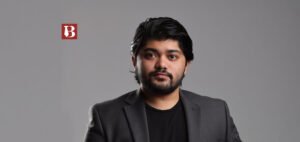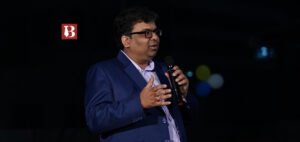Does our education need to be equipped with the latest advanced tech fads, or is education with pencils and paper enough?
In the age of all the hype of artificial intelligence (AI), the world’s leading force in transforming education, Professor Dr. Richard Charles Larson believes that human intelligence (HI) is irreplaceable. He says that for us humans to believe in ourselves again, all we need is model thinking for everyday life to make smarter decisions.
Operations research, educational technology, queuing theory researcher and educator, and the principal investigator of the MIT BLOSSOMS Initiative, Professor Dr. Richard C. Larson believes that to transform education so that it matches the demands and expectations of the current era, we must ‘Learn how to think differently – learn how to learn.’
He furthers that, whether simple or complex, decisions are part of everyday life. “It’s all too easy to jump to Google (or nowadays to ChatGPT) for the answers, but where does that take us? We’re losing the ability to think critically and decide for ourselves.” Thus, he urges us to become…
‘Class A Decision Makers and Model Thinkers’
Being an Award-winning Author of books like Urban Police Patrol Analysis (MIT Press, 1972 and awarded the Lanchester Prize by the Operations Research Society of America (ORSA), the co-author, with Amedeo Odoni, of Urban Operations Research, Prentice Hall, 1981 (republished in 2007), and research papers like the Queue Inference Engine and the Hypercube Queueing Model, earning him the worldwide fame as ‘Dr. Queue,’ Professor Dr. Richard C. Larson asks us to undertake a major mind shift in our everyday thought processes. “Model thinking develops our critical thinking skills, using a framework of conceptual and mathematical tools to help guide us to full comprehension and better decisions. Learn actively with pencil and paper, immersing yourself fully in puzzles and paradoxes drawn from science and the everyday. Face complex technical issues in a simple, entertaining way – no heavy math. See the world around you clearly, learning something new every day,” he adds.
Another ex-MIT Professor and the world-renowned linguist, Steven Pinker, praises the book Model Thinking for Everyday Life as “Filled with surprising insights about the hazards, ordeals, and pleasures of everyday life—revelations that seem perfectly intuitive after Larson has explained them.”
An Immersive Learning Experience with Pencil and Paper
In fact, Professor Dr. Richard C. Larson himself never used any of the advanced tech fads and so-called digital tools in his teaching. “With regard to modern fads in learning, I am old-fashioned. I believe in computers being turned off and the student interacting with the material with many sharpened pencils and blank sheets of paper at hand. Recent educational research has validated this approach, as the mechanical movement of your hand, writing out key results, is a best-in-class pathway to parts of your brain that will store and remember the results. So, for me, a student’s “immersive learning experience” is with pencil and paper!”
“Let’s not confuse a Google (or ChatGPT) search for an answer as real learning. I like to say, “The Answer is NOT the answer; the Process is the answer.”
An Icon in Global Academia and National Leadership
Professor Dr. Richard C. Larson stands as a towering figure in the global academic community. An internationally acclaimed thought leader and educator, he has redefined the landscape of education and applied research across disciplines. As a distinguished professor at the Massachusetts Institute of Technology (MIT), he has served for over 15 years as the Co-Director of the MIT Operations Research Center. His contributions have earned him prestigious accolades, including election to the National Academy of Engineering, recognition as a Founding Fellow of INFORMS, and the conferring of the INFORMS President’s Award and the Kimball Medal. Most recently, in 2025, he was honored with the Albert Nelson Marquis Lifetime Achievement Award, celebrating his lifelong commitment to excellence and innovation.
From Accidental Teacher to Educational Visionary
Professor Dr. Richard C. Larson’s journey into academia was serendipitous. Initially following his father’s path in Electrical Engineering, his passion for teaching emerged while serving as a Teaching Assistant for an undergraduate course in Applied Probability at MIT. It was during this experience—witnessing students’ transformation from confusion to clarity—that he discovered his true calling. The spark ignited in that classroom set the foundation for a lifetime dedicated to inspiring minds and nurturing future leaders.
Encouraged by his mentor, Professor Alvin W. Drake, Professor Dr. Richard C. Larson took a leap into academia rather than industry. What started as a temporary academic detour evolved into a lifelong commitment. Over time, he ascended the academic ranks at MIT—eventually becoming the Mitsui Professor—an endowed position that reflects the depth of his contributions.
The Maverick Mind of MIT: A Professor of Infinite Learning
Never confined by traditional boundaries, Professor Dr. Richard C. Larson’s academic journey reflects a rare blend of intellectual agility and fearless curiosity. Over the years, he has held faculty appointments across five different departments at MIT—ranging from Electrical Engineering to Urban Studies, Civil Engineering, and finally, the interdisciplinary Institute for Data, Systems, and Society (IDSS). This academic versatility mirrors his belief in breaking silos and integrating knowledge across fields to address real-world problems.
Despite his shifts in departments, his approach to professorship has remained constant—infusing his work with purpose, practical relevance, and a dedication to student engagement.
Teaching That Resonates: Bridging Theory and Practice
Professor Dr. Richard C. Larson’s teaching philosophy is rooted in connecting theoretical concepts to tangible, real-world applications. Whether teaching topics such as applied probability, urban operations research, or queueing theory, he engages students through interactive dialogues and case-based examples. He emphasizes that true learning occurs when students recognize the relevance of their studies to real-life challenges.
He often uses dynamic examples—from traffic light systems to airline operations—to illustrate how abstract mathematical models translate into real-world operations. This approach not only deepens understanding but also sparks curiosity and fosters long-term retention.
Operations Research: Grounded in Reality, Driven by Impact
As a pioneer in Operations Research (OR), Professor Dr. Richard C. Larson has championed its core mission—improving decision-making through analytical methods rooted in real-world operations. His groundbreaking work, such as the development of the Hypercube Queueing Model, exemplifies his ability to blend theory with application. While many celebrate his theoretical contributions, Larson himself emphasizes that these were always born from solving actual, pressing problems.
He believes that OR is not merely a theoretical pursuit—it is “research on operations” in the truest sense, spanning micro to macro systems, from city traffic flows to global healthcare logistics.
Discovery Learning and a Promise to Transform – From Passive Listening to Active Innovation
At the heart of Prof. Dr. Larson’s revolutionary approach to education lies a simple but powerful belief: true learning emerges not from passive listening but from active involvement. He champions a dynamic classroom environment where students—regardless of whether they’re excelling or struggling—are equally drawn into the learning process.
Rather than relying on monologue-style lectures, he often pauses mid-lesson to pose questions to the class, creating space for exploration and collaborative thinking. He first engages students who volunteer and then gently challenges those who haven’t raised their hands. This strategy, he explains, brings the classroom closer to what he calls “Discovery Learning”—a shared journey of uncovering insights, solving problems, and grasping complex concepts together. This interactive approach transforms lectures into a participatory experience where students feel seen, heard, and empowered.
Helping Students See Their Futures
Professor Larson’s influence extends well beyond academic comprehension. He seeks to spark vision—helping his students not only grasp the material but also imagine the lives they could lead after graduation. He encourages them to picture the impact they could make, the careers they might build, and the ventures they could initiate—possibly even founding their own companies. Through this lens, education becomes not just about earning a degree but about realizing one’s potential in a world of limitless opportunity.
Shifting from Theory to Real-World Problem Solving
In a field once dominated by abstract rigor, Professor Larson has played a key role in reshaping Operations Research into a discipline rooted in relevance. He recalls how early academic instruction in the field was almost entirely focused on formal theorems and proofs—more like a subset of applied mathematics. Every lecture followed a predictable rhythm: “Theorem, Proof.”
But that model, he believes, no longer suits the complexity of today’s world. “Operations Research,” he asserts, “is now driven by the urgent need to understand, formulate, and solve real-world problems.” And for that, he’s grateful. His path in OR has allowed him to sidestep the narrow constraints of purely theoretical work and instead immerse himself in applied problem-solving—where innovation happens and change begins.
A Hard Lesson and a Lifelong Commitment
Every great teacher has a defining failure—and for Professor Larson, one such moment came early in his career. As a young teaching assistant, he vividly recalls an encounter that left a lasting impression. While explaining an equation in an Applied Probability course, a student asked him to break it down intuitively. Though the equation was technically correct, Larson couldn’t offer a clear, relatable explanation at that moment.
That inability stayed with him—not as a defeat, but as a turning point. “It was a life-changing moment,” he reflects. From that day forward, he made a solemn vow to himself: never again would he present the material without understanding it so deeply that he could convey it intuitively, even to students struggling at the C-level. That promise—to know, to communicate, to connect—has become a guiding principle of his teaching ever since.
Sustainability in Learning: Knowledge That Endures
As education increasingly aligns itself with the ideals of sustainability, Professor Dr. Richard Larson brings a unique perspective to the conversation. For him, sustainability in learning isn’t just about adopting eco-friendly practices—it’s about ensuring that knowledge lasts. He defines it: “the ability to be maintained at a certain rate or level,” and applies that definition to the learning process itself.
To him, real education means more than short-term memorization; it’s about instilling concepts that endure. Quoting Benjamin Franklin—“Tell me and I forget. Teach me, and I remember. Involve me, and I learn.”—Professor Larson underscores that sustainability in the classroom is achieved by engaging students deeply and interactively. By involving them in the learning journey, he ensures that what they absorb doesn’t fade but stays with them, becoming a lifelong resource they can draw upon in their careers and lives.
The Professor Beyond the Podium: Balancing Work and Family
While his professional achievements are vast and influential, Professor Larson is equally grounded in his personal life. At the end of each day, as he walked through the kitchen door, he made a conscious effort to transition from academia’s high-stakes world to the deeply personal role of husband and father. He speaks with quiet conviction about “removing the MIT hat” and “putting on the family hat,” demonstrating his belief that leadership at home is as vital as leadership in the classroom.
This equilibrium between intellectual pursuit and emotional presence reflects a holistic view of success—one that does not sacrifice personal relationships at the altar of professional acclaim.
A Message to the Next Generation: Dare to Lead, Not Follow
To young educators, students, and future innovators, Professor Larson offers a timeless piece of wisdom. In a world driven by trends, rankings, and peer pressure, he urges them to resist the pull of conformity. “Look in the mirror,” he advises, “and identify your true intellectual passions—those unique interests that you can nurture and grow throughout your lifetime.”
He encourages individuals not to chase what’s popular but instead to discover their own calling. “Don’t follow the crowd,” he says. “Be bold enough to chart your own course—and one day, others may follow in your footsteps.”
An Educator Who Inspires Transformation
Professor Dr. Richard C. Larson’s career has never been about titles or accolades alone. It’s about fostering discovery, nurturing ambition, and ensuring that every student, regardless of where they begin, can grow into a thinker, a problem-solver, and a visionary.
His story is one of continuous evolution—a reflection of a man who, through humility and passion, transformed not just how we learn but how we teach. Through every challenge overcome, every innovation introduced, and every student inspired, Professor Dr. Richard C. Larson remains the world’s leading force in reshaping education for the better.
A Legacy That Teaches, Inspires, and Transforms
Professor Dr. Richard C. Larson’s journey is far more than an illustrious academic career—it is the story of a man who transformed education through human connection, intellectual depth, and unwavering purpose. From shaping generations of minds at MIT to redefining how real-world problems are approached through Operations Research, he has created a legacy that bridges the worlds of theory and practice, passion and discipline, academia and life.
His methods have ignited classrooms, his research has influenced global systems, and his values have inspired countless students to find not just success—but meaning.
As the world looks to the future of education, Professor Dr. Richard C. Larson stands as its guiding light: a global pioneer, a transformational thinker, and above all, a teacher in the truest sense of the word.




